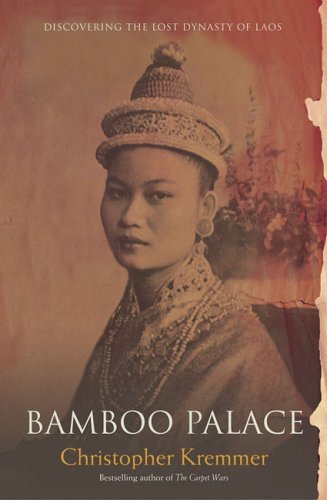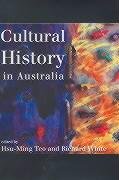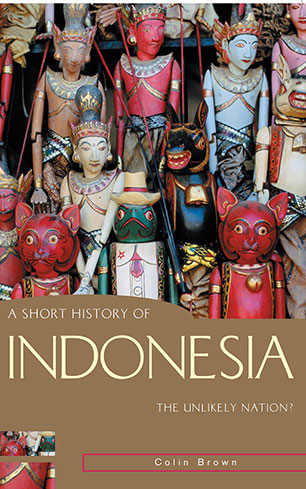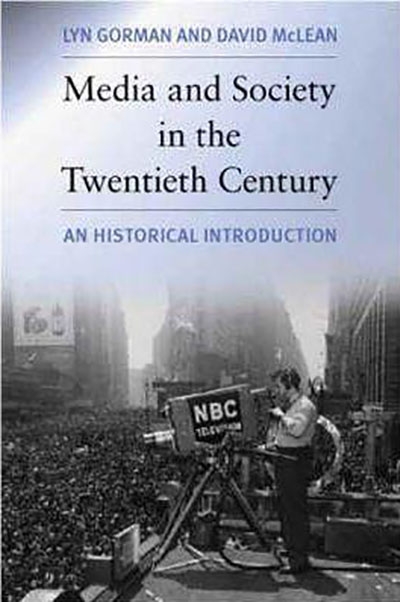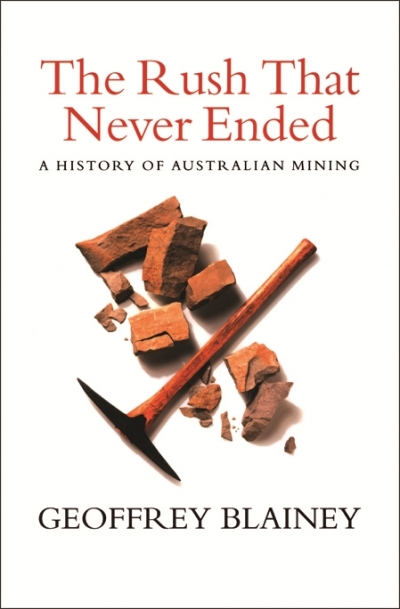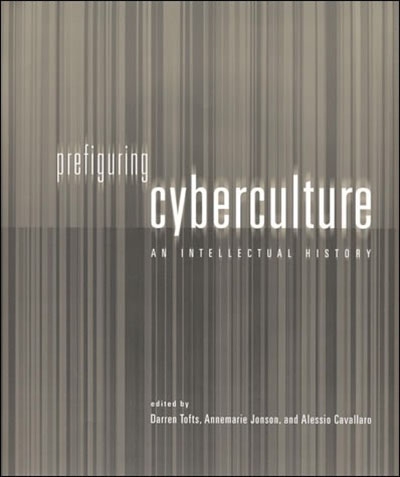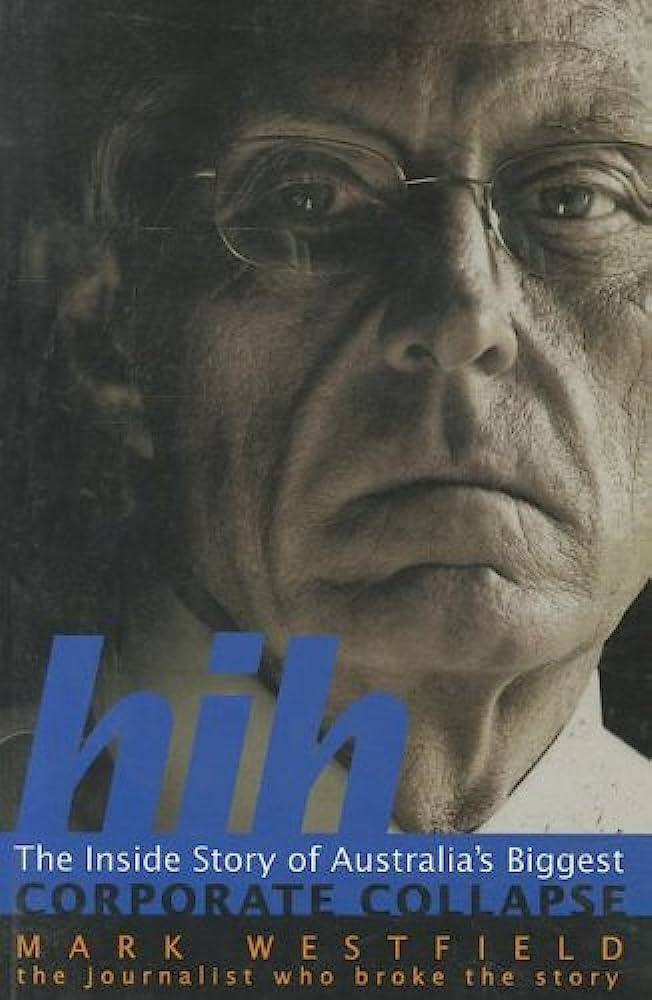History
The History Wars by Stuart Macintyre and Anna Clark & Whitewash edited by Robert Manne
Towards the end of his informative introduction, Robert Manne, the editor of Whitewash: On Keith Windschuttle’s fabrication of Aboriginal history, outlines the collective intention of the book’s nineteen contributors. He refers to Windschuttle’s The Fabrication of Aboriginal History (2002), a revisionist text dealing with early colonial history and violence in nineteenth-century Tasmania, as ‘so ignorant, so polemical and so pitiless a book’ ...
... (read more)Bamboo Palace: Discovering the lost dynasty of Laos by Christopher Kremmer
I first met a refugee from Laos, a teacher in her former life, while working part-time in a miserable egg-packing factory in the early 1980s. I had only a hazy notion of what had brought Ping to this country. Christopher Kremmer’s Bamboo Palace has now clarified those circumstances, and what a sad and painfully human story it is: of a 600-year-old socially iniquitous, politically benign kingdom destroyed and replaced by a totalitarian state.
... (read more)A Game of Our Own: The origins of Australian football by Geoffrey Blainey
Australian football has lost its magic, a unique quality existing in the 1950s, and even as late as the 1970s. It derived from the fixed positions that players adopted and from their physical diversity. In their competing forms, they became metaphysical constructs – good versus evil, beauty versus ugliness, benign innocence versus malevolent experience – constructs limited only by the human imagination ...
... (read more)Cultural History in Australia edited by Hsu-Ming Teo and Richard White
The editors of this book declare that cultural history is fashionable, so fashionable that it stands in for what might otherwise be known as ‘general history’ or even just ‘history’. ‘When historians set out to write the history of everything,’ they claim, ‘these days they are most likely to imagine themselves writing cultural history.’
Why, then, is it necessary to assemble a collection of essays on the subject? It cannot be simply to celebrate the triumph of this form of history, since many of the contributors are still urging its attractions. The purpose might be to demonstrate the range and accomplishment of cultural history in Australia, since the collection includes some distinguished local practitioners – except that their contributions to the genre are well established and readily available. Alternatively, such collections can provide the opportunity to consider the theory and method of cultural history, and quite a few of the contributors do so – but mostly with reference to their own practice.
... (read more)A Short History Of Indonesia: The Unlikely Nation? by Colin Brown
This is a welcome addition to the historical literature about Indonesia. Aimed at new readers with limited or no knowledge of Indonesia, and written in an informal and accessible style, it makes an interesting contrast with the other well-known history in this field, Merle Ricklefs’s History of Modern Indonesia. When Ricklefs produced his second edition about ten years ago (he published a third expanded edition in 2001), the very existence of the Indonesian state was not as problematic as it now seems. Scholars could still talk without hesitation of a ‘history of Indonesia’. These days, the future of the country as a single state is more contested than at any time since the 1950s. Hence Brown’s subtitle, ‘The Unlikely Nation?’ He explains in the foreword that, since the idea of a united archipelago is so recent, ‘in a sense the book has been written backwards, using the Indonesian state and nation at the end of the twentieth century as its starting or defining point’.
... (read more)Media and Society in the Twentieth Century: A historical introduction by Lyn Gorman and David McLean
Media history is an oddly underdeveloped area. Historians who work in media history are frequently reminded that such work exists at the margins of their discipline, and media does not feature at all in many accounts of political and social history. To take one example, Alastair Davidson’s otherwise impressive From Subject to Citizen: Australian citizenship in the twentieth century (1997) contains one reference to Rupert Murdoch’s citizenship, but none to the role of media in forming the identities of Australian citizens in the twentieth century.
... (read more)The Rush that Never Ended by Geoffrey Blainey & The Fuss that Never Ended edited by Deborah Gare et al.
‘He looks a bit like Marty Feldman with two good eyes.’ So wrote a journalist of Geoffrey Blainey in 1977. In The Fuss That Never Ended, a collection of essays on Blainey arising out of a Melbourne symposium, Bridget Griffen-Foley no less irreverently compares the historian to a character played by Steven Seagal in a movie she saw on television – not because he shares Seagal’s ‘fake tan, ponytail, high-pitched voice, rippling muscles, kickboxing prowess or lurid, technicolour knee-length leather coat’, but because of his ‘style of investigation’ as a young historian. Blainey, she suggests, was neither bookworm nor archive rat. He went into the field, spoke to real people, visited historical sites. His work even helped his first employer, the Mount Lyell Mining and Railway Company, to exploit long-forgotten mineral deposits. Since producing his history of that company in his early twenties, he has been Australia’s leading mining historian, and one of that industry’s staunchest defenders. It has probably been easier for most people to swallow Blainey’s historical and economic arguments in favour of mining than Hugh Morgan’s biblical ones.
... (read more)Prefiguring Cyberculture: An intellectual history edited by Darren Tofts, Annemarie Jonson, and Alessio Cavallaro
Many people regard cyberculture as the territory of boffins, sci-fi enthusiasts, and ‘itinerant wanderers’, and inescapably limited to computer technology. However, the term is also applied to a field of research, one that has always been interdisciplinary: traversing philosophy, mathematics, physiology, biology, linguistics, cognitive sciences, physics, and sociology. Prefiguring Cyberculture: An intellectual history exemplifies this cross-disciplinary approach.
... (read more)HIH: The inside story of Australia's biggest corporate collapse by Mark Westfield
If you like business bodice-rippers, these are blissful days. After the host of books that emerged from the dot com Götterdämmerung, another wave of cautionary tales has hit the shelves. I reached for Mark Westfield’s HIH after reading my third book about Enron, Mimi Swartz’s Power Failure, and was struck at once by a casual coincidence: that both Enron’s Ken Lay and HIH’s Ray Williams insisted on being referred to as ‘Doctor’. In Lay’s case, this was on account of his PhD in economics. Williams laid rather flimsier claim to his honorific, after Monash University rewarded him for various endowments with an honorary doctorate in laws in 1999.
... (read more)Australia’s Boer War: The war in South Africa 1899–1902 by Craig Wilcox
Ever since Federation, Australians have heard of the Boer War, as they have heard of the Wars of the Roses. As to deep understanding, they have as much about the one war as about the other. As a ‘Matric’ student in 1939, I had for my Commercial Practice teacher a Boer War veteran – lean, tall, bowlegged – every schoolboy’s image of our horsemen who had taught the Empire’s enemies such a lesson in South Africa. Beguiled by eager juvenile diversionists, he would treat us to ten minutes of soldier anecdotes, straight from his saddle forty years earlier.
... (read more)


